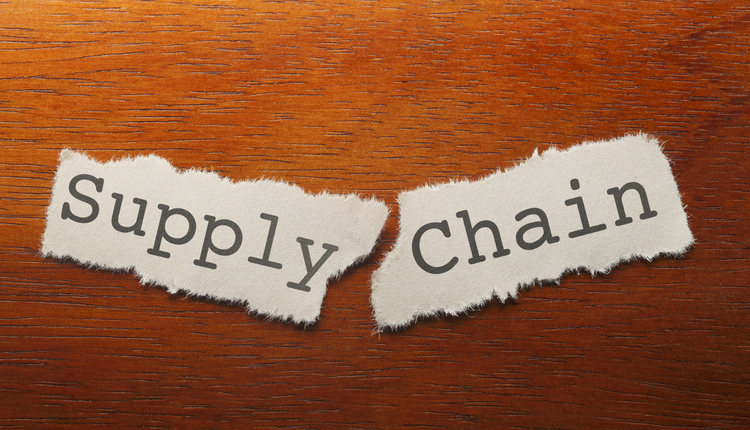In the first two Spend Perspectives columns of 2013, I focused heavily on how the health of the global economy was impacting retailers. I also discussed how lower shipping costs positively impact e-commerce sales and improve customer satisfaction. What has been a dreary Q1 2013 outlook showed signs of improvement in March 2013 (retail trade sales were down 0.6% from February 2013, but they were up 2.6% over the same period last year). The UK has avoided an unprecedented triple dip recession with encouraging retail sales in both March and April 2013. However, a long debated and anticipated showdown over Internet taxation is reaching a critical juncture – and the impacts of passing this bill are far-reaching.
The Marketplace Fairness Act passed in the Senate on Monday, May 6, 2013 by a huge margin - 69 to 27. This legislation provides a practical way for state, county, and local governments to collect sales tax for goods sold on the Internet. The law only applies to businesses with more than $1 million a year in annual sales. Currently, if you don’t have a brick and mortar location or distribution center in the state in which the purchase is made, you don’t have to pay sales tax (online retailers are actually supposed to be collecting the taxes; however, very few are, and governments are not enforcing non-compliance). Recent estimates forecast almost $11.5 billion in 2012 uncollected state and local sales taxes from Internet sales. With state and local governments in a drastic crunch for funding and plagued by massive debts, this legislation is the most plausible means to regaining financial stability.
The Senate passage sets up a showdown in the Republican-held House, where the bill is expected to pass by a narrow margin. If it ultimately passes the House, how will the Internet tax impact consumers, retailers (both online and brick and mortar) as well as the overall economy? Who are the potential winners and losers should the bill pass in the House?
The debate over Internet taxation is nothing new. Brick and mortar retailers have long argued that online retailers enjoy an uneven playing field. Consumers have been able to significantly reduce the costs of retail purchases by shopping online without incurring sales taxes (generally range between 5% and 10%). The news is a boon for brick and mortar retailers who have borne the brunt of the online retail explosion. Some have gone as far as to predict that the law could be an “Early Christmas” for big box retailers such as Best Buy, Barnes & Noble, Wal-Mart, and Target. The theory being that consumers will reduce the practice of “show-rooming” and purchase less from online retail and more from brick and mortar. Interestingly, and unlike E-Bay, Amazon has reversed course and is now a proponent of passing the legislation. This is largely due to Amazon’s increasing statewide footprint with operations in most states and a rumored impending brick and mortar rollout. Small brick and mortar retailers also stand to benefit greatly as they compete with niche online retailers on a more level playing field.
Online retailers, current no tax states (Alaska, Delaware, Montana, New Hampshire, and Oregon), and most importantly consumers are the biggest losers if the legislation passes the House. Due to fierce competition in the online sector, many online retailers have been forced to move to a “free-shipping” model. Shipping is often the second largest cost element for an online retailer (after labor costs) and there’s no denying that free shipping squeezes margins. Online retailers stand to get hammered on several fronts:
• As sales taxes increase, online sales are sure to decline.
• The cost of compliance for online retailers will be a huge burden – there are over 9,000 state, county, and local taxing authorities.
• Shipping costs will be harder to subsidize with decreased sales - most online retailers believe the cost of offering free or subsidized shipping is offset by higher profits as a result of higher sales volumes.
A broad Internet taxation law is certain to damper Internet sales as well as make free shipping harder to sustain. Consumers are in a lose-lose situation as they could see a double punch, on both the taxation side as well as on increased shipping costs.
The battle over The Marketplace Fairness Act is sure to top the headlines over the coming months. We will be tracking it very closely and will keep you updated on how it will it will impact you as a consumer, shipper, business owner and how it will impact the overall economy!
The Marketplace Fairness Act passed in the Senate on Monday, May 6, 2013 by a huge margin - 69 to 27. This legislation provides a practical way for state, county, and local governments to collect sales tax for goods sold on the Internet. The law only applies to businesses with more than $1 million a year in annual sales. Currently, if you don’t have a brick and mortar location or distribution center in the state in which the purchase is made, you don’t have to pay sales tax (online retailers are actually supposed to be collecting the taxes; however, very few are, and governments are not enforcing non-compliance). Recent estimates forecast almost $11.5 billion in 2012 uncollected state and local sales taxes from Internet sales. With state and local governments in a drastic crunch for funding and plagued by massive debts, this legislation is the most plausible means to regaining financial stability.
The Senate passage sets up a showdown in the Republican-held House, where the bill is expected to pass by a narrow margin. If it ultimately passes the House, how will the Internet tax impact consumers, retailers (both online and brick and mortar) as well as the overall economy? Who are the potential winners and losers should the bill pass in the House?
The debate over Internet taxation is nothing new. Brick and mortar retailers have long argued that online retailers enjoy an uneven playing field. Consumers have been able to significantly reduce the costs of retail purchases by shopping online without incurring sales taxes (generally range between 5% and 10%). The news is a boon for brick and mortar retailers who have borne the brunt of the online retail explosion. Some have gone as far as to predict that the law could be an “Early Christmas” for big box retailers such as Best Buy, Barnes & Noble, Wal-Mart, and Target. The theory being that consumers will reduce the practice of “show-rooming” and purchase less from online retail and more from brick and mortar. Interestingly, and unlike E-Bay, Amazon has reversed course and is now a proponent of passing the legislation. This is largely due to Amazon’s increasing statewide footprint with operations in most states and a rumored impending brick and mortar rollout. Small brick and mortar retailers also stand to benefit greatly as they compete with niche online retailers on a more level playing field.
Online retailers, current no tax states (Alaska, Delaware, Montana, New Hampshire, and Oregon), and most importantly consumers are the biggest losers if the legislation passes the House. Due to fierce competition in the online sector, many online retailers have been forced to move to a “free-shipping” model. Shipping is often the second largest cost element for an online retailer (after labor costs) and there’s no denying that free shipping squeezes margins. Online retailers stand to get hammered on several fronts:
• As sales taxes increase, online sales are sure to decline.
• The cost of compliance for online retailers will be a huge burden – there are over 9,000 state, county, and local taxing authorities.
• Shipping costs will be harder to subsidize with decreased sales - most online retailers believe the cost of offering free or subsidized shipping is offset by higher profits as a result of higher sales volumes.
A broad Internet taxation law is certain to damper Internet sales as well as make free shipping harder to sustain. Consumers are in a lose-lose situation as they could see a double punch, on both the taxation side as well as on increased shipping costs.
The battle over The Marketplace Fairness Act is sure to top the headlines over the coming months. We will be tracking it very closely and will keep you updated on how it will it will impact you as a consumer, shipper, business owner and how it will impact the overall economy!











